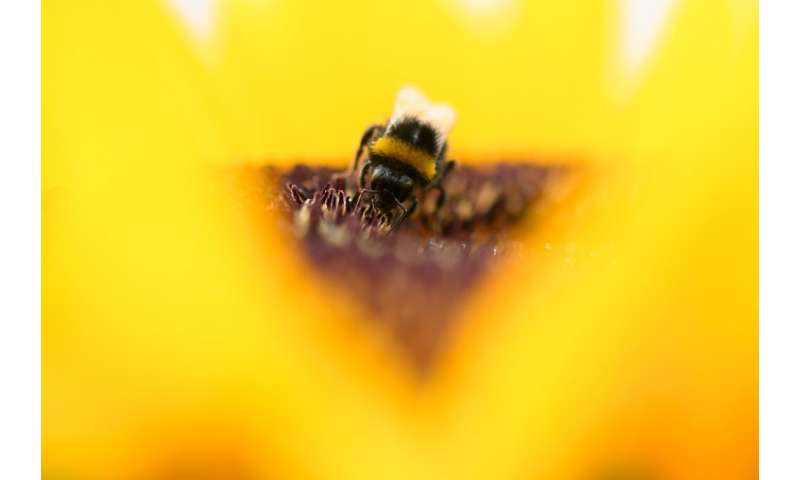#Current Chernobyl-level radiation harmful to bees: study

“#Current Chernobyl-level radiation harmful to bees: study”

Bumblebees exposed to levels of radiation found within the Chernobyl exclusion zone suffered a “significant” drop in reproduction, in new research published Wednesday that scientists say should prompt a rethink of international calculations of nuclear environmental risk.
The study, published in the journal Proceedings of the Royal Society B, set out to discover how ionizing radiation affects insects, which are often thought to be more resilient than other species.
Researchers in Scotland and Germany exposed bee colonies in a laboratory setting to a range of radiation levels found in areas of the exclusion zone around the ruined Chernobyl site, where a reactor exploded in 1986 in the world’s worst nuclear disaster.
They found that colony reproduction reduced by 30 to 45 percent at doses previously considered too low to impact insects.
“We found that at radiation levels detectable in Chernobyl, the number of new queen bees produced from the colony was significantly reduced and colony growth was delayed—meaning colonies reached their peak weight at a week later,” said the paper’s lead author Katherine Raines.
The lecturer in environmental pollution at the University of Stirling told AFP by email that researchers “anticipate that this may have an effect on pollination/ecosystem services in contaminated areas”.

The authors said they chose bumblebees both because of a lack of lab-based research into bees and because of their crucial role in pollination.
Ionizing radiation can occur either from nuclear sites or medical procedures, although the levels tested were higher than those that would likely be found in the environment from normal releases, Raines said.
But she added that the researchers were “very surprised that we could detect effects as low as we did”.
“Our research suggests insects living in the most contaminated areas at Chernobyl may suffer adverse effects, with subsequent consequences for ecosystem services such as pollination,” she added.
The authors said if their findings could be generalized “they suggest insects suffer significant negative consequences at dose rates previously thought safe” and called revisions to the international framework for radiological protection of the environment.
People are not allowed to live near the Chernobyl power station and the abandoned settlements within the exclusion zone are surrounded by forests hosting birds, wolves, elks and lynxes.
A giant protective dome was put in place over the destroyed fourth reactor in 2016.
Bumblebees exposed to Chernobyl-levels of radiation consume more nectar
Katherine E. Raines et al. Chernobyl-level radiation exposure damages bumblebee reproduction: a laboratory experiment, Proceedings of the Royal Society B: Biological Sciences (2020). DOI: 10.1098/rspb.2020.1638
© 2020 AFP
Citation:
Current Chernobyl-level radiation harmful to bees: study (2020, October 21)
retrieved 21 October 2020
from https://phys.org/news/2020-10-current-chernobyl-level-bees.html
This document is subject to copyright. Apart from any fair dealing for the purpose of private study or research, no
part may be reproduced without the written permission. The content is provided for information purposes only.
For forums sites go to Forum.BuradaBiliyorum.Com
If you want to read more Like this articles, you can visit our Science category.




